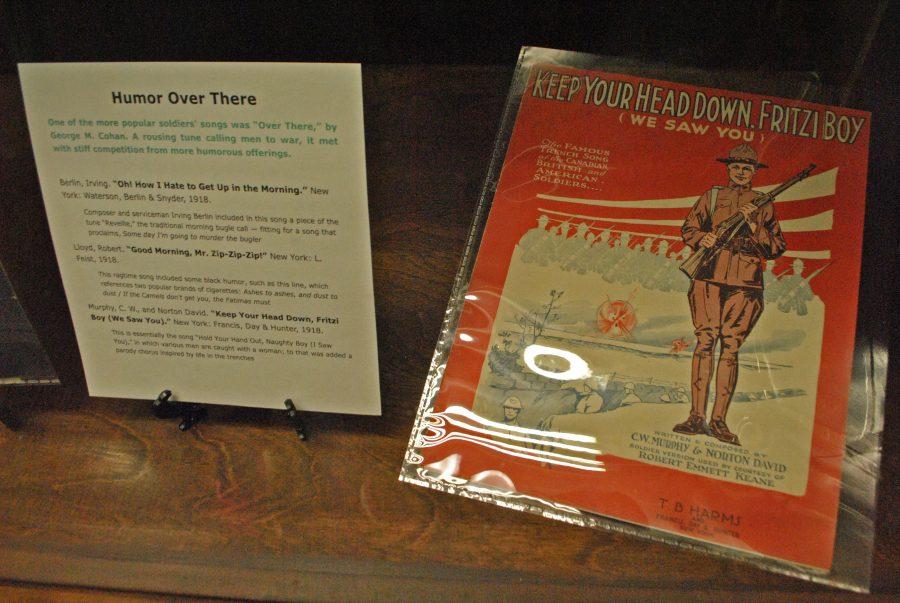A little over 100 years ago, on April 6, 1917, President Woodrow Wilson declared war against Germany, sending America into World War I and changing citizen’s lives. As a way to memorialize the nation’s entry into the “Great War,” the University is hosting an exhibit of sheet music from the time period entitled “Over here & Over There: Exploring the Music Scores of WWI” all week in W.S. Hoole Special Collections Library.
The music scores on display represent early twentieth century American culture and demonstrate what citizens were thinking about during the oft-forgotten period.
Kate Matheny, reference services and outreach coordinator for special collections, said she thinks the exhibit represents WWI well from the perspective of contemporary popular culture.
“I think that people just need to know that this was part of our culture, this thing that happened to us,” Matheny said. “And this exhibit I think also highlights what regular culture was like at the time, and apart from the war, you have this really strong culture of sheet music production.”
While preparing the exhibit, she tried to focus on entry into the war itself rather than the negative perspectives revolving around the debates that happened before it.
Matheny said at the time, some people were resistant to America joining the war and some people were in favor of it. She thinks some people probably wanted WWI to be a European war that America stayed out of because it would have been problematic for America’s large immigrant population. After the Germans started attacking American ships out on the open water, it became an American issue.
“But I think at a certain point, there was enough damage done to the United States, and there was enough sense that we needed to do something,” she said.
Once America finally did enter the war, Matheny said it was important to get the nation all on one side to build patriotic feelings even for the people who were initially hesitant to get involved.
Because America did not enter the war until well after it began and was not involved in it for too long, she said she is always struck by people who forget that WWI is part of American history. America sent about a couple hundred thousand troops to war, and while many did not return, she said American involvement was critical toward the end by injecting fresh troops to wear down the Germans.
“So, I just like people to remember that it was something that was a part of our history too and not just European history,” she said.
Blair Mercer, a junior majoring in American studies, said commemorating WWI, is important to him because it gives proper recognition to generations of brave Americans who otherwise may have been nameless.
“By commemorating America’s entrance into World War I, we as citizens are immortalizing the legacy of those who gave their lives to protect freedom overseas, as well as freedoms at home,” Mercer said.







